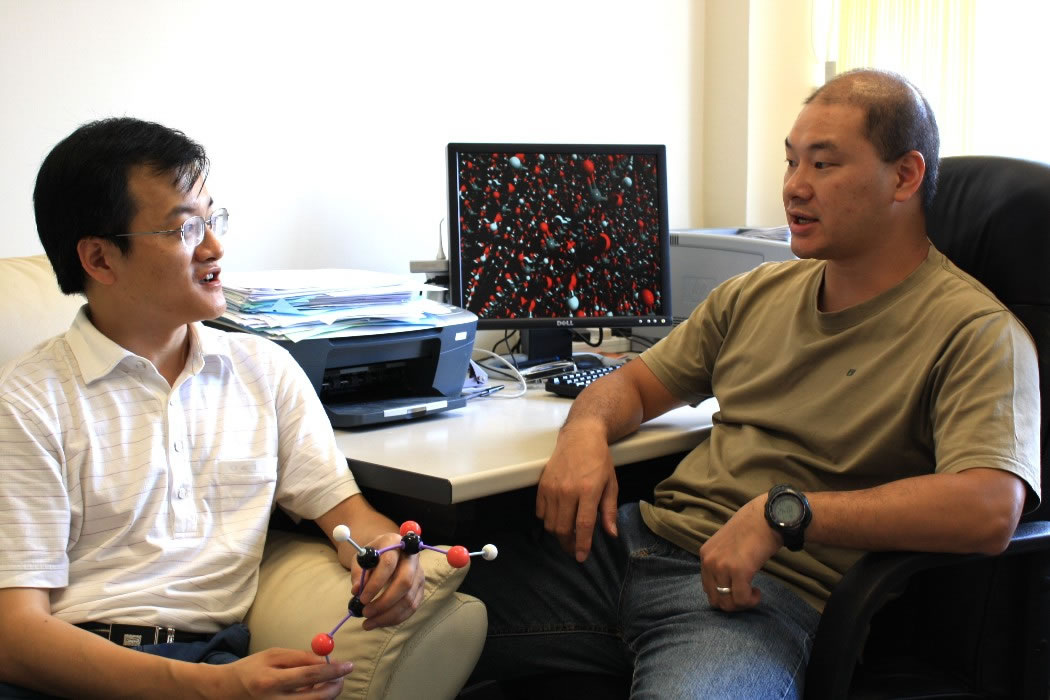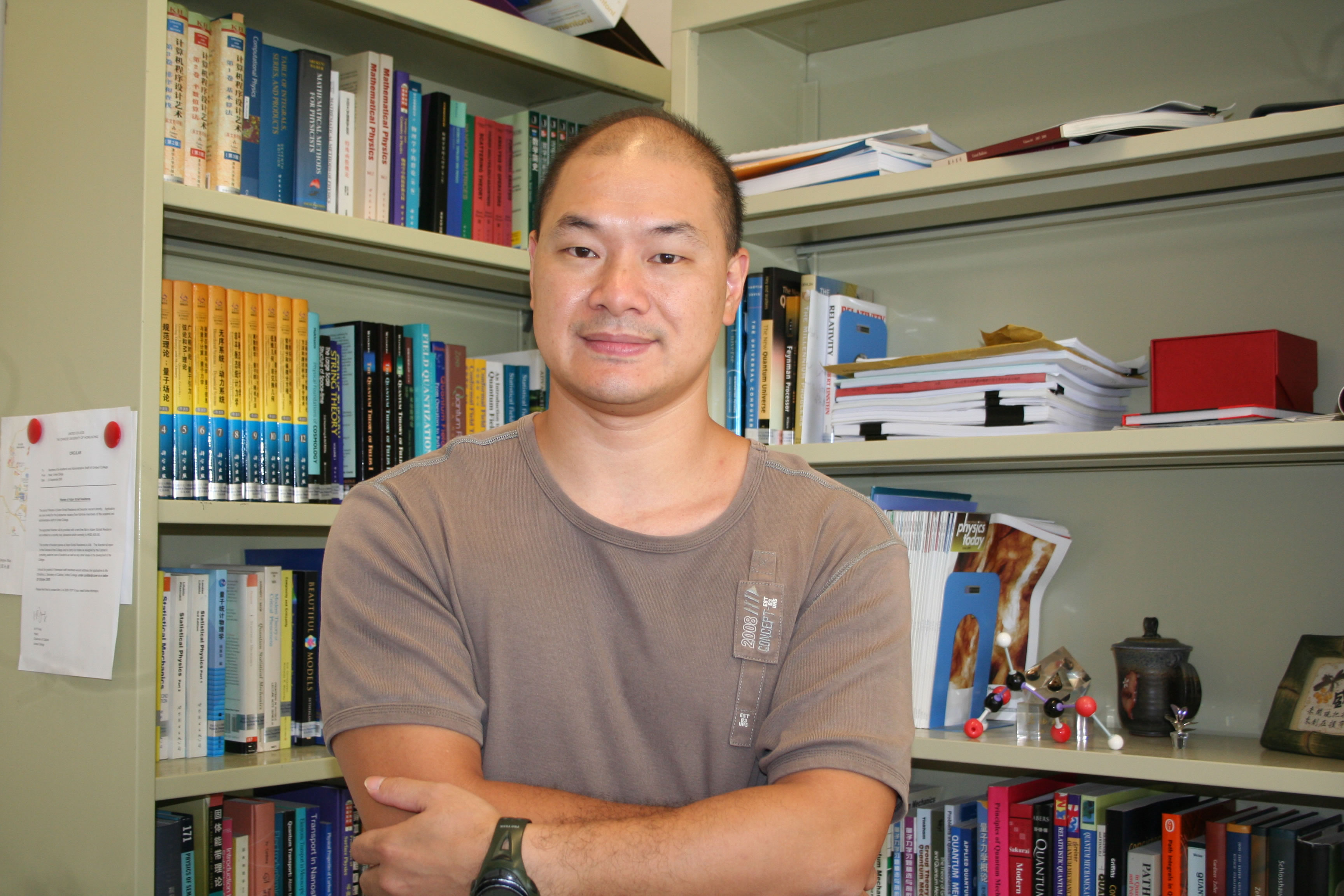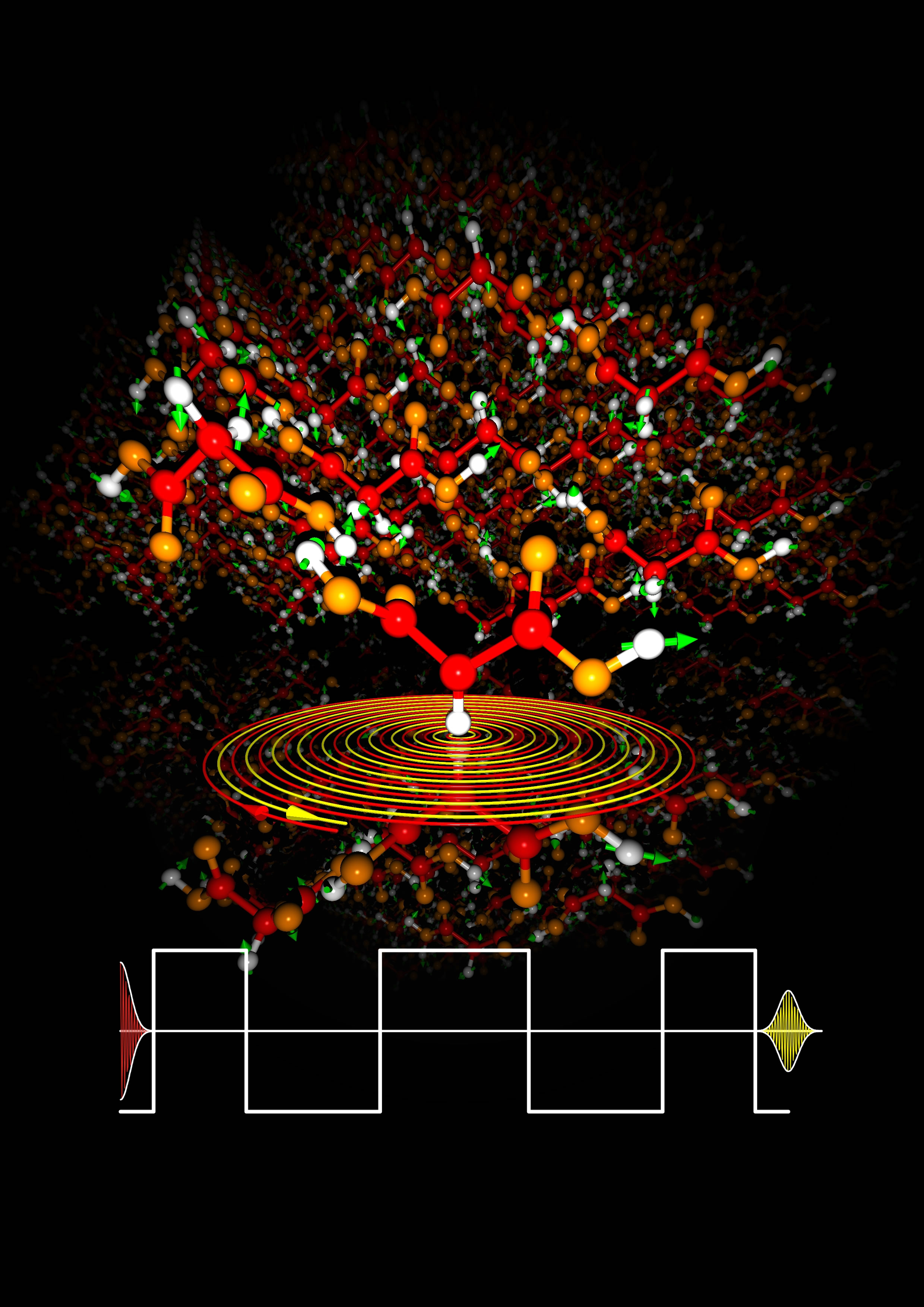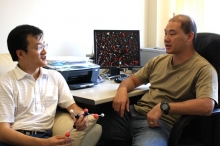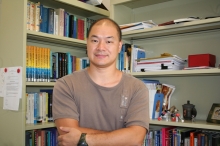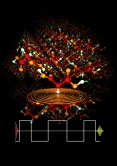CUHK
News Centre
CUHK Groundbreaking Quantum ResearchA Great Leap in Supercomputer Development
Have you ever imagined owning a personal quantum computer when faced with problems of inadequate storage and congested network? Prof. Liu Renbao, Assistant Professor of the Department of Physics, The Chinese University of Hong Kong (CUHK), has achieved a significant breakthrough by prolonging the lifespan of the state of quantum superposition from less than 0.04 microseconds to 30 microseconds in his joint research with the University of Science and Technology of China (USTC). Widely recognized as a great leap in quantum computing, the research is published in the latest edition of the prestigious international science journal Nature.
It is believed that the mastery of quantum information will make possible the creation of quantum computers capable of processing massive and complex data, and provide solutions for weather forecast, optimal design, identification of genes and engineering decoding, which are considered tough tasks for present day computers.
Superposition and state collapse are two unique features of a quantum object. Superposition means that an object can stay simultaneously in multiple states. For example, an electron spin, similar to a tiny magnetic needle, can simultaneously point up and down. State collapse occurs when a quantum object turns either up or down randomly and unpredictably, thus losing quantum information. This problem is especially severe for electron spins in solid-state systems at room temperature.
To protect the state of quantum superposition, the research team led by Professor Liu tactfully applied microwave pulses to electron spins in a solid-state material called malonic acid crystal. It was discovered that the lifespan of spin superposition state was greatly prolonged from less than 40 billionth seconds to about 30 millionth seconds, which is sufficiently long for quantum computing. The team also proved that the method works well even at room temperature, laying the foundation of household quantum computers.
The research also bears significance to the improvement of magnetometry which is useful in the field of biomedical measurement. Professor Liu remarked that the microwave pulse sequences adopted in the research could extend the resonance period in magnetic resonance imaging, hence yielding higher precision in frequency measurement.
The research took four years to today’s achievement. In the six-member research team, CUHK is responsible for theoretical research, while the USTC team led by Prof. Du Jiangfeng put theory to practice. Professor Liu is delighted with the publication of the project in Nature, and hopes to continue breaking new grounds in the research of quantum lifespan, ‘Hong Kong and mainland scientists have been making significant contributions in quantum research. With the concerted efforts of Chinese physicists, I believe China will take the lead in quantum research worldwide.’
Professor Liu specializes in the research of physical foundation of quantum computing. He has published more than 30 papers in various peer-reviewed international journals such as Physical Review Letters and Physical Review B. He graduated from the Department of Physics, Nanjing University, and received his PhD from the Institute of Semiconductors, Chinese Academy of Sciences. He then joined Tsinghua University and the University of California, San Diego as a postdoctoral fellow. In 2005, he joined CUHK as an Assistant Professor in the Department of Physics. He is currently a council member and Honorary Secretary of the Physical Society of Hong Kong.
Nature is a prominent scientific journal that covers important new advances. Unlike most scientific journals that are highly specialized, it publishes original research articles across a wide range of scientific fields.


